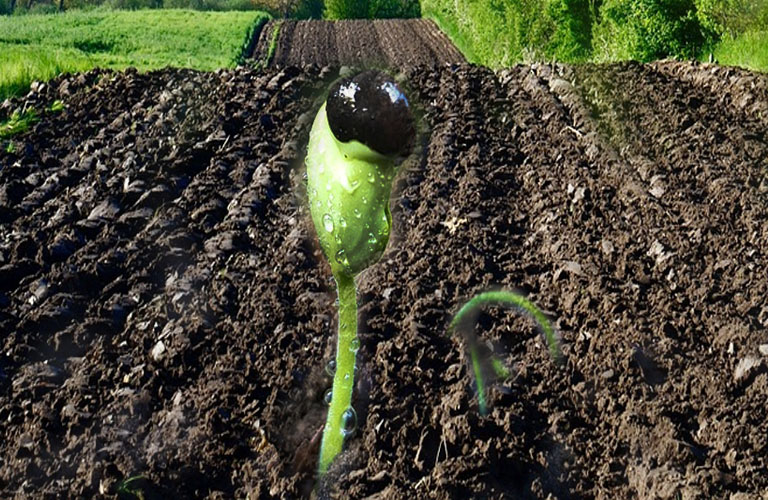The Ideal Garden Soil
The ideal garden soil is what is known as a "rich, sandy loam," at least eight inches deep; if it is deep eighteen it will be even better. It contains the proper proportions of both sand and clay, and further has been put into the best of mechanical condition by good tilth.
That last word brings us to a new and very important matter. "In good tilth" is a condition of the soil difficult to describe, but a state that the gardener comes soon to recognize.
Ground, continually and properly cultivated, comes soon to a degree of fineness and lightness at once recognizable. Rain is immediately absorbed by it, and does not stand upon the surface; it does not readily clog or pack down; it is crumbly and easily worked; and until your garden is brought to this condition you cannot attain the greatest success from your efforts.
We emphasized "properly cultivated." That means that the soil must be kept well supplied with humus, or decomposed vegetable matter, either by the application of sufficient quantities of organic manures, or by green manuring, or by "resting under grass," which produces a similar result from the amount of roots and stubble with which the soil is filled when the sod is broken up.
FIND OUT MORE:

Only by supply of good quality humus your garden will have the chance to be kept in that light, friable, spongy condition which is absolutely essential to luxuriant vegetable growth.
"It is a golden maxim to cultivate the garden for the nose, and
the eyes will take care of themselves." ~ Robert Louis Stevenson
Did You Know?
Soil health, also referred to as soil quality, is defined as the continued capacity of soil to function as a vital living ecosystem that sustains plants, animals, and humans.
Soil contains living organisms that when provided the basic necessities of life - food, shelter, and water - perform functions required to produce food and fiber.
Only "living" things can have health, so viewing soil as a living ecosystem reflects a fundamental shift in the way we care for our nation's soils.
Soil isn’t an inert growing medium, but rather is teaming with billions of bacteria, fungi, and other microbes that are the foundation of an elegant symbiotic ecosystem.
Soil is an ecosystem that can be managed to provide nutrients for plant growth, absorb and hold rainwater for use during dryer periods, filter and buffer potential pollutants from leaving our fields, serve as a firm foundation for agricultural activities, and provide habitat for soil microbes to flourish and diversify to keep the ecosystem running smoothly.





